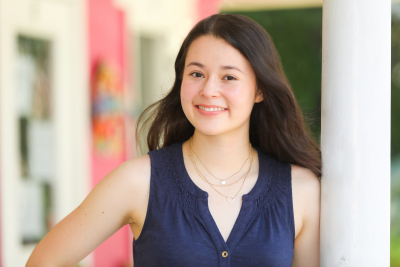
The Breaking News: #DataViz Headline Challenge is a collaboration between the American Statistical Association and the New York Times that challenges middle school, high school, and undergraduate students to interpret graphs and submit accurate and compelling headlines for articles that would include those visualizations. Zoe Spicer won the undergraduate category with her headline, “Ukrainian Refugee Flows Poised to Break Records, With Most Headed to Poland.” You can find the official announcement on their website.
Zoe Spicer is a student in Dr. Jacob Smith's STA 199 Intro to Data Science course this spring. We asked her a few questions:
It's early yet, but what are you thinking about studying at Duke?
I’m definitely undecided but am thinking about studying Political Science, Public Policy, History, or English. I’ve also recently looked into the Decision Sciences certificate.
What motivated you to take STA199?
I talked to a few upperclassmen who took the class, and they recommended the class—they thought it was a good mix of coding experience and real-world application. I also thought learning R and statistical analysis would be helpful for the Polisci and Pubpol majors, which I am considering.
Have you used R before?
No, the first time I’ve used R was in STA199!
Has writing headlines for the competition made you think differently about what you read?
I read The New York Times a lot for my American Foreign Policy class. Participating in this competition made me think about how much thought went into the headlines to make them accurate, informational, and attention-grabbing.
You are a Team Kenan "Coucher", willing to converse with other students about ethical matters. Do graphics and headlines ever come up in those conversations?
I think graphics and headlines have implicitly informed these conversations. Some of our Couching topics this year have been free speech, climate change, political polarization, and COVID. Graphics using suspect data ethics and sensationalist headlines can contribute to misinformation, which underlies the debates about these topics happening today.
Can we say you are a first year student from Charlotte?
Yes!